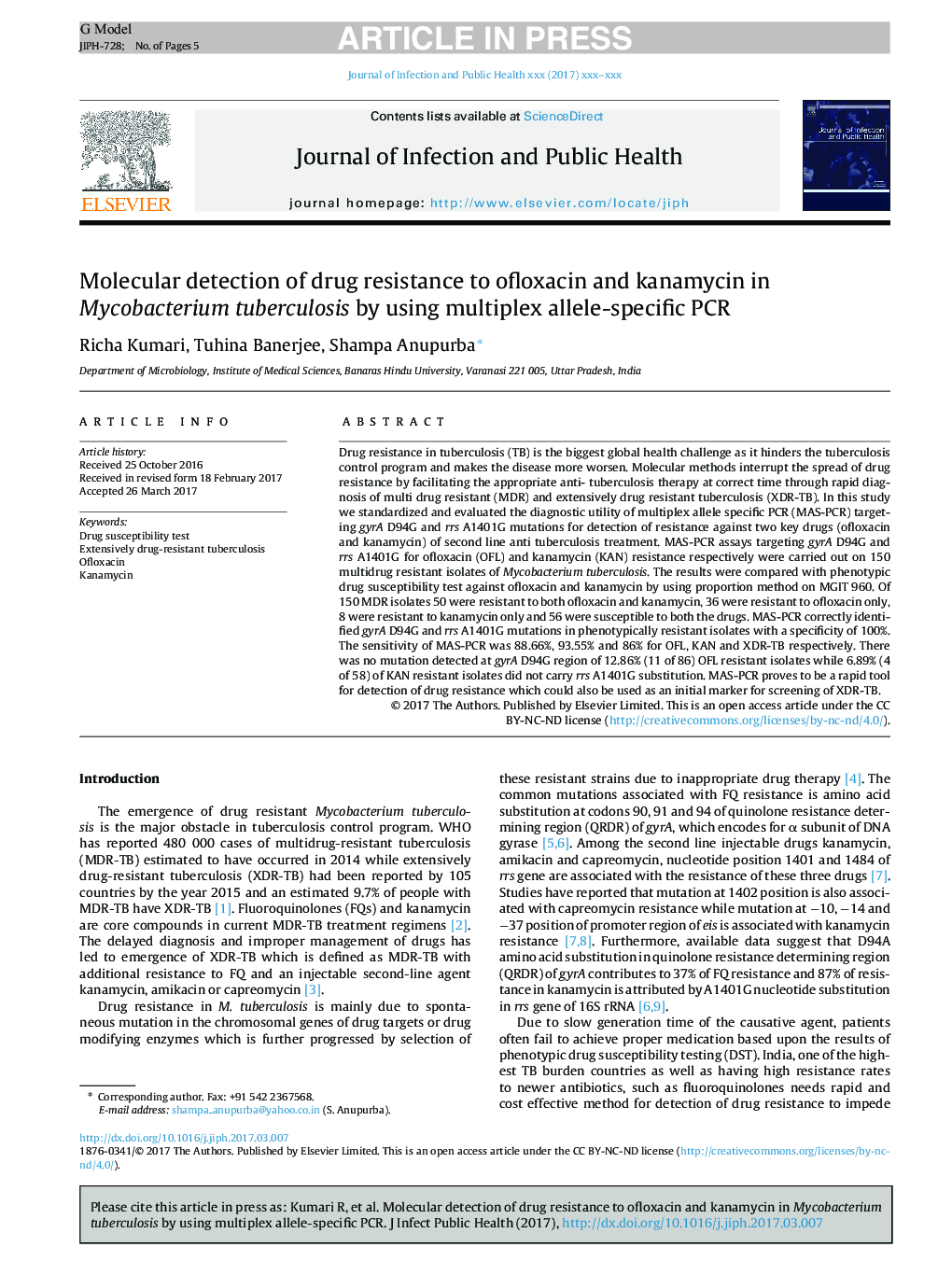| Article ID | Journal | Published Year | Pages | File Type |
|---|---|---|---|---|
| 8746854 | Journal of Infection and Public Health | 2018 | 5 Pages |
Abstract
Drug resistance in tuberculosis (TB) is the biggest global health challenge as it hinders the tuberculosis control program and makes the disease more worsen. Molecular methods interrupt the spread of drug resistance by facilitating the appropriate anti- tuberculosis therapy at correct time through rapid diagnosis of multi drug resistant (MDR) and extensively drug resistant tuberculosis (XDR-TB). In this study we standardized and evaluated the diagnostic utility of multiplex allele specific PCR (MAS-PCR) targeting gyrA D94G and rrs A1401G mutations for detection of resistance against two key drugs (ofloxacin and kanamycin) of second line anti tuberculosis treatment. MAS-PCR assays targeting gyrA D94G and rrs A1401G for ofloxacin (OFL) and kanamycin (KAN) resistance respectively were carried out on 150 multidrug resistant isolates of Mycobacterium tuberculosis. The results were compared with phenotypic drug susceptibility test against ofloxacin and kanamycin by using proportion method on MGIT 960. Of 150 MDR isolates 50 were resistant to both ofloxacin and kanamycin, 36 were resistant to ofloxacin only, 8 were resistant to kanamycin only and 56 were susceptible to both the drugs. MAS-PCR correctly identified gyrA D94G and rrs A1401G mutations in phenotypically resistant isolates with a specificity of 100%. The sensitivity of MAS-PCR was 88.66%, 93.55% and 86% for OFL, KAN and XDR-TB respectively. There was no mutation detected at gyrA D94G region of 12.86% (11 of 86) OFL resistant isolates while 6.89% (4 of 58) of KAN resistant isolates did not carry rrs A1401G substitution. MAS-PCR proves to be a rapid tool for detection of drug resistance which could also be used as an initial marker for screening of XDR-TB.
Related Topics
Health Sciences
Medicine and Dentistry
Infectious Diseases
Authors
Richa Kumari, Tuhina Banerjee, Shampa Anupurba,
